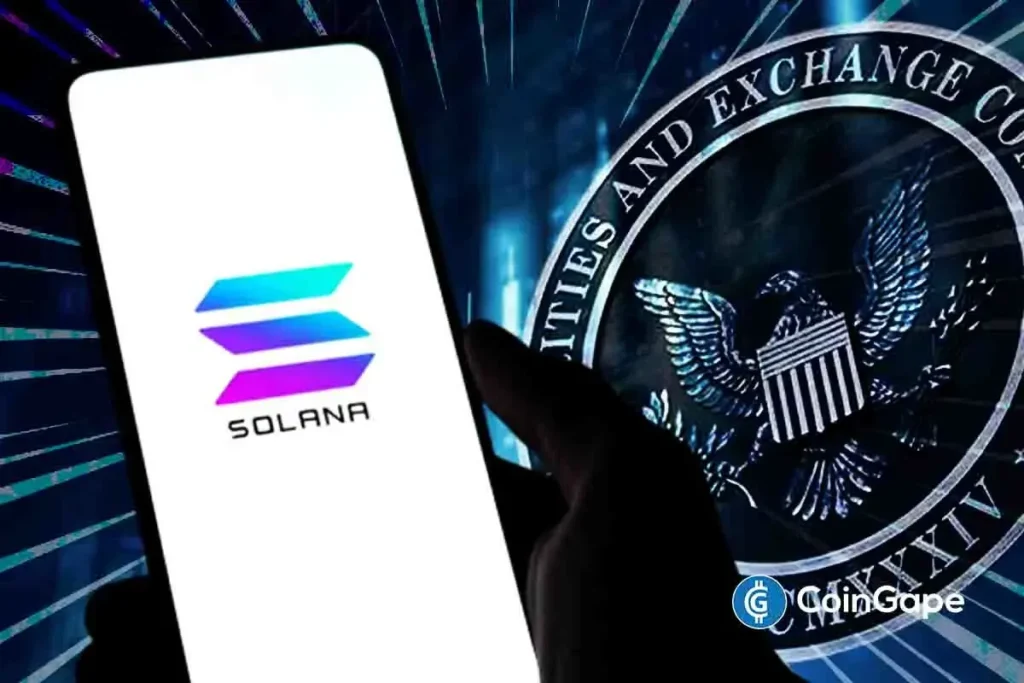Fidelity’s Solana ETF: A Continued Delay and Evolving Regulatory Landscape
Fidelity’s efforts to launch a Solana ETF have hit another roadblock, as confirmed by the U.S. Securities and Exchange Commission (SEC) on July 7, 2025. The delay is part of a broader review initiated by the SEC concerning the proposal submitted by Cboe BZX Exchange. This proposal aims to facilitate the listing and trading of the Fidelity Solana Fund, but the decision-making process remains mired in regulatory complexities.
The SEC’s official review signifies a critical juncture for Fidelity’s Solana ETF proposal. Stakeholders and the public have been invited to provide comments within a 21-day window and rebuttals within 35 days following the publication of the proposal in the Federal Register. Market analysts, including Bloomberg ETF analyst James Seyffart, have characterized this delay as anticipated, reflecting the SEC’s prolonged hesitation regarding spot crypto ETFs related to altcoins. This highlights the ongoing lack of regulatory clarity that continues to hinder the launch of new products in this arena.
The SEC’s recent release of formal guidance on crypto exchange-traded products has added another layer to this regulatory landscape. Designed under the leadership of a Republican-majority commission, the guidance lays down new standards for the evaluation and approval of crypto ETFs. As per a report from Reuters, asset managers are now required to articulate risks, custody structures, and the unique aspects of crypto-based ETFs in straightforward terms. The effort aims to ensure comprehensive understanding among investors and regulators regarding the characteristics of funds, such as the Solana ETF, that provide exposure to newer altcoins.
A significant part of the SEC’s objectives includes making the ETF approval process swifter. Future updates may potentially reduce approval times from over 200 days to around 75 days. While this change could accelerate the approval of numerous financial instruments in the crypto space, the Solana ETF remains entangled in regulatory uncertainty for the time being, as many similar applications—including those for XRP and various meme coin ETFs—continue to languish in limbo.
Amid these delays, some firms are exploring alternative avenues to engage investors. Recently, REX Financial and Osprey Funds introduced the REX-Osprey Sol + Staking ETF, which, while not a direct Solana ETF, offers investors indirect access to the Solana network and its staking rewards. This move signifies a notable shift in strategy, as companies aim to capitalize on the growing demand for crypto exposure without waiting for regulatory approvals on direct ETF offerings.
In conclusion, Fidelity’s Solana ETF faces significant regulatory hurdles, underlining a broader issue affecting numerous crypto-related financial products. While the SEC’s recent guidance aims to streamline ETF applications and provide clearer frameworks for asset managers, the road to approval remains fraught with challenges. As alternatives emerge and industry players adapt to this transformative landscape, investors must remain vigilant and informed to navigate the complexities of cryptocurrency investments. For those interested in the developments surrounding crypto ETFs, particularly the Solana ETF, staying updated on regulatory shifts and market dynamics will be crucial in the months ahead.


